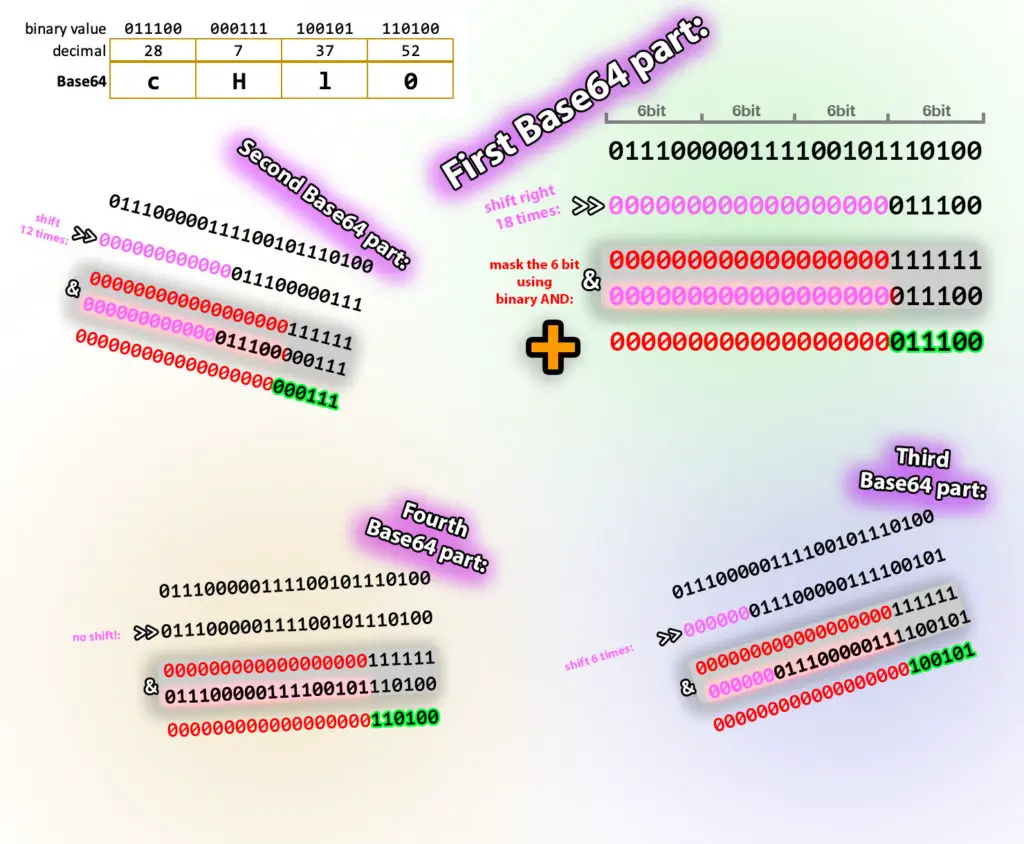

Use the Encode module to select the byte encoding you want. The base64 encoding is only defined for single-byte characters.
#Base 64 decode code
The function will croak with "Wide character in subroutine entry" if $bytes contains characters with code above 255. Pass an empty string as second argument if you do not want the encoded string to be broken into lines. The returned encoded string is broken into lines of no more than 76 characters each and it will end with $eol unless it is empty. The second argument is the line-ending sequence to use. The first argument is the byte string to encode. The following primary functions are provided: # encode_base64( $bytes ) # encode_base64( $bytes, $eol ) Įncode data by calling the encode_base64() function. A 65-character subset () of US-ASCII is used, enabling 6 bits to be represented per printable character. The base64 encoding is designed to represent arbitrary sequences of octets in a form that need not be humanly readable. This module provides functions to encode and decode strings into and from the base64 encoding specified in RFC 2045 - MIME (Multipurpose Internet Mail Extensions). $decoded = decode_base64($encoded) #DESCRIPTION $encoded = encode_base64('Aladdin:open sesame') MIME::Base64 - Encoding and decoding of base64 strings #SYNOPSIS use MIME::Base64


 0 kommentar(er)
0 kommentar(er)
